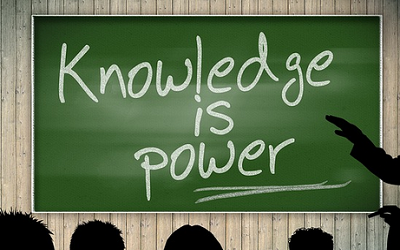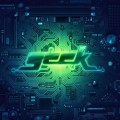今天墨尔本文波雅思分享给大家的是关于教育类教育不仅仅是写字算数相关报道,大家注意积累词汇句型观点!There’s more to education than spelling and numbers
The current curriculum includes life skills that are taught across all subjects, but the review wants them only taught when “necessary”. Shutterstock

Headlines in newspapers on Monday morning said much of the curriculum review has been welcomed across Australia. The removal of the four “general capabilities” from the curriculum is a travesty many are yet to recognise.
The four “general capabilities” are personal and social capability, critical and creative thinking, ethical understanding and intercultural understanding. Are thinking and creativity now considered irrelevant for education?
Research suggests these are critical skills for innovation, problem-solving, empathy, evaluation, knowledge application and mental health. These skills are also necessary for the promotion of a democratic society. Young people need to be able to think for themselves and make up their own minds about their values, who they become and what they do.
The reduced focus on personal and social capability also makes little sense. Relationships are not the soft and fluffy end of education; they are the central plank of how we learn and how well we live our lives. They determine our ability to contribute to both the world of work and society.
Confederation of British Industry director-general John Cridland says that over half of British firms are concerned about the self-management and resilience of school leavers, who must be better prepared for life outside the school gates.
Eton College headmaster Tony Little has expressed concern over the narrowing of the curriculum:
A sharp focus on performance is a good thing, but there is a great deal more to an effective and good education than jostling for position in a league table … Most of us as parents want our children to become capable adults, able to look after themselves and their own families, but we want them to be good citizens, too.
The US Department of Defence funded research leading to the Wingspread Declaration on School Connections, a document highlighting the need for a sense of belonging for effective education.
There is now a raft of Australian and international evidence for what constitutes authentic well-being for young people and how a focus on student well-being underpins universal learning outcomes, mental health for the vulnerable and pro-social behaviour. Healthy relationships with teachers, families and peers are integral to this.
Many of our young people are not learning the values and skills needed outside of school. Most teachers are doing a great job, despite the pressures on them to focus on test results. The evidence for the benefit of social and emotional learning in the curriculum is overwhelming. In the US a meta-analysis of 213 social and emotional learning programs showed that academic outcomes for participating students had an 11% improvement in academic skills compared to control groups.
It is hardly surprising that some of our most privileged and advantaged schools are taking student well-being – “learning to be” and “learning to live together” – seriously. Prestigious and successful schools such as Geelong Grammar, The Knox School and St Peters in Adelaide have a heavy focus on these attributes.
We need to go beyond the economic, rote-learning mindset, which is singularly concerned with the acquisition and regurgitation of facts. There is great concern that the race to the top in PISA rankings is undermining the education our children and our country really needs. What is the point of top marks in all subjects if you are unable to live a fulfilling life?
And what about valuing all of those children who are never going to be academic stars, but have other things to offer? Don’t they count?
Our education system is about the future of Australia, our democracy, our future mental health and our ability to contribute within our community. Relationships matter, resilience matters. Teachers, researchers and many parents know this, so why don’t the reviewers?



